
20 minute read
WHAT’S TRENDING
Hamilton Fraser annual survey reveals insights into aesthetic industry trends
Hamilton Fraser has revealed the results of its annual survey, which provides unique insights into current aesthetic industry practices and trends.
The survey garnered insights from more than 300 practitioners based across the UK and Ireland.
Respondents were fairly evenly spread in terms of where they operate from, with the highest percentage (17%) being based in London, followed by the North West (12%), South East (11%), North East (10%) and Yorkshire and The Humber (9.5%).
Nurses made up the largest group (43.5%), followed by doctors/cosmetic doctors (22.5%), dentists (13.1%), dental therapists (2.6%) and plastic surgeons (2.6%). 74.8% were female and 24.8% were male.
Most practitioners worked solo, with 55.2% saying they worked alone. 19.9% said they worked alongside a nurse, while
5.9% said they worked with a doctor.
An attractive prospect
Many practitioners stated they still worked for the NHS (50.7%) or in other jobs and did aesthetics part-time, with 69.6% saying aesthetics was not their main source of income.
Of those who had left the NHS, 24.8% said they would not consider returning, citing factors such as work-life balance, antisocial hours, lack of flexibility and stress.
Interest in non-surgical cosmetic treatments was cited as the main reason for moving into aesthetics, with 59.8% giving this as the top answer. A new challenge and flexible working hours were the next biggest motivators, with 53.9% and 53.3% saying this was what drew them to the field.
Job satisfaction also came in high, with more than half (50.3%) stating this as their reason. Financial reasons were listed by 32%.
When asked if their motivations for joining the industry had been met, 33.3% said “completely” and 52.9% answered “mostly”.
Treatment trends
When asked what treatments they provided, unsurprisingly, it was injectables that topped the poll, with 79.7% of respondents naming botulinum toxin as a treatment they offered and 76.1% saying they performed dermal fillers.
Skincare ranked next, with 56.9% saying they offered it and 47.1% saying they performed chemical peels.
In terms of the treatments most commonly requested by patients, the top choice was treatments to counter the signs of ageing. There was also a fairly high demand for skincare solutions, followed by preventative ageing treatments. Treatments for menopause symptoms were an area where there was currently a lower demand but growing popularity.
In terms of trends, the greatest interest was in aesthetic regenerative procedures, with 64.1% stating this was an area they were interested in. ‘Prejuvenation’ (treating younger patients with preventative treatments) was also popular, with 58.2% of those who responded citing it as a top trend.
Practitioners were also excited about new applications for RF microneedling (43.1%) and weight loss injections (34.6%).
Complications and complaints
Reassuringly, 80.7% of those who took part in the poll said their patients had never experienced an infection following a treatment. 19% said this had happened once or twice, and only 0.3% admitted to infections occurring more than twice.
Infection control strategies were widely used, with skin disinfection (93.8%), hand hygiene/glove usage (92.5%), environmental disinfection (89.9%) and aseptic technique (84%) being named as the top practices.
In terms of identifying red flags and saying no to patients whom they deemed unsuitable for treatment, the majority had done so on more than one occasion, with 30.7% saying they had turned a patient away once or twice, 30.7% saying they had said no to treating unsuitable patients at least three times and 24.8% saying they had said no to treating unsuitable patients more than three times. Only 13.7% said they had never turned a patient away.
When asked if they had ever regretted treating a patient, it was almost a 50/50 split, with 48% saying “yes” and 52% saying “no”. Of those who answered “yes”, the main reason given was that they felt the patient had unrealistic expectations of treatment. Practitioners also stated body dysmorphia, patients wanting treatments for low costs, difficult or demanding patients and gut feelings as other reasons to say “no”.
Encouragingly, 91.5% said they were routinely looking out for patients displaying any mental health problems, in particular, body dysmorphia, with questionnaires and screening during consultation being the main methods of analysis.
Optimistic for the future: Plans for growth and expansion
Despite the current economic climate, many of the survey respondents said they had plans to expand their businesses, and the majority said they felt “fairly optimistic” (51.6%) or “optimistic” (36.3%) about their business prospects in 2024, with 80.1% saying they were on track to meet their objectives.
Of the 52% of people who had a business plan, 70.4% said it had changed from the previous year due to business growth, expansion, moving premises and increased economic benefits.
Interestingly, others said they had changed their business plans due to moving direction, with a move towards wellness being cited as one new avenue for business.
Only 30.1% said they had received funding for their business, and of those, the majority had used personal savings (46.7%). Bank loans made up 31.5%, followed by borrowing money from family and friends at 26.1%. A total of 18.5% said they had used angel investors, while 13% had used crowdfunding and the same number for venture capital. 12% had accessed a small business administration loan, and 10.9% had used a credit card or overdraft to fund their business.
Eddie Hooker, Founder and CEO of Hamilton Fraser, comments, “Our annual survey sheds light on the evolving landscape of aesthetics and serves as a compass for us as we evolve with the industry, ensuring that our services safeguard practitioners, their patients, and the integrity of the care they provide.
“Highlights for me included the growing demand for regenerative procedures and preventative treatments, and we are committed to tailoring insurance solutions that align with these emerging trends.
“We have a long history of working closely with the Joint Council for Cosmetic Practitioners (JCCP), and so I was pleased to see that the survey results reflected a commitment to patient safety, with 80.7% reporting no post-treatment infections and practitioners turning away unsuitable patients based on criteria like body dysmorphia and unrealistic expectations.
“I am also pleased to see that 91.5% of practitioners are actively monitoring for mental health issues, emphasising our collective responsibility for holistic care.”
Shutterstock/oatawa
JCCP and CPSA release their public narrative for 2024
The Joint Council for Cosmetic Practitioners (JCCP) and the Cosmetic Practice Standards Authority (CPSA) have released their Public Narrative statement for 2024.
The JCCP’s Clinical Advisory Group will continue to work with the CPSA and key partners to develop new and revised standards to assist in the design of a new and responsive model for licensing, and to identify emerging procedures that may warrant inclusion in the Government’s proposed new licensing scheme in in England.
The JCCP will operate its PSA-approved Practitioner Register under the same terms and conditions as currently used and continue to campaign for the full implementation of the JCCP 10 Point Plan as part of the licensing scheme.
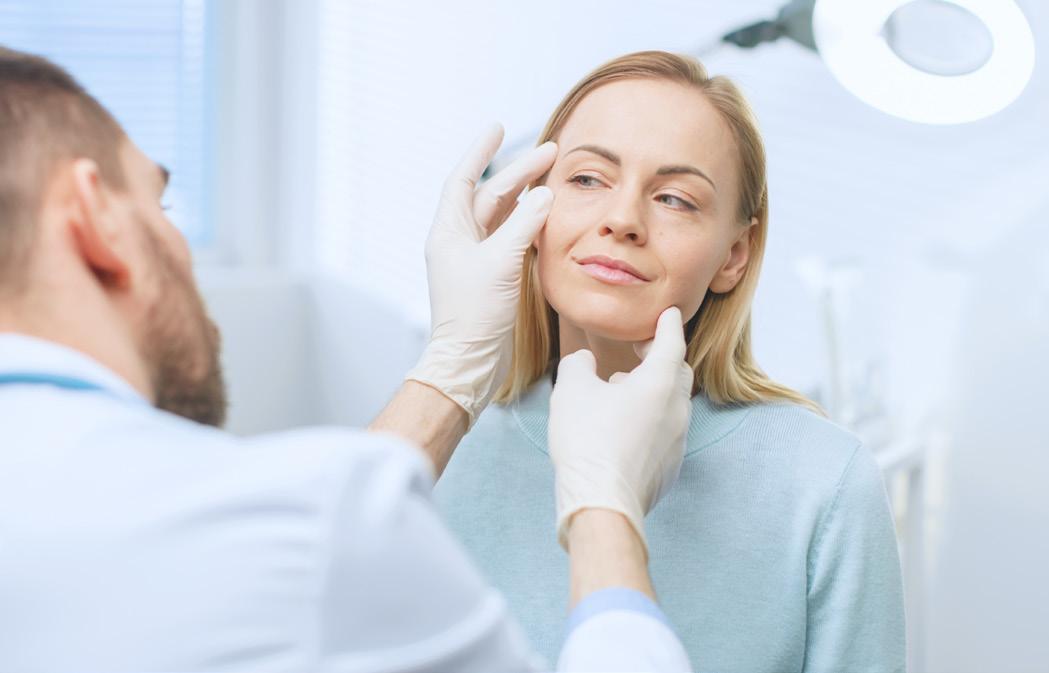
In addition, the JCCP will further develop its Education and Training Register for providers and qualifications in association with DHSC proposals.
The organisiation also set out its intention to continue to build on those areas where it is seen as having a major strategic role in the sector, such as influencing members of the public, government, regulators and other stakeholders, complaints handling, standard setting, licensing and education and training. In terms of complaints, the council will continue to develop and promote its consumer complaints platform in the interests of public protection and patient safety.
Clearer definition regarding medical, medically related, and cosmetic procedural interventions will be called for and priority will be given to grow and develop the JCCP Corporate Membership Scheme for commercial partners in the aesthetics sector. Finally, the JCCP will continue to engage with research partners to contribute to the evidence base to inform safe and effective aesthetics practice and governance.

90% of men under 50 worried about cost-of-living stress ruining their looks
A new survey has revealed that nine out of 10 men are worried about the effect cost-of-living stress is having on their appearance. Perhaps surprisingly, the age most affected is men between 18 to 24 years old, with a staggering 40% worrying ‘a lot’ about it.
The research, conducted by independent survey company OnePoll on behalf of SafeAP, a downloadable app founded by two NHS doctors to help people find qualified cosmetic practitioners, surveyed 1,000 UK males aged 18-50, breaking the results down by age and region.
Nine out of 10 (90%) of the survey cohort admitted being worried about their appearance, with their concerns directly related to the stress of the cost-of-living crisis. 30% of men worried ‘a lot’ about this impact, with the majority (41%) at least ‘somewhat’ concerned – only 10% were ‘not at all’ worried. The top five were weight/fitness (40%); skin quality (25%); teeth appearance (23%); with eyebags (19%) and hair loss (19%) tied for fourth place – other areas included muscle tone and wrinkles. Even among the least worried age group; those aged 4650; nearly one in five (19%) had substantial concerns. In the battle of the North, 43% of men on the North East were the most worried, compared to a more chilled out 23% in the North West where 14% were ‘not at all’ worried.
With such an overwhelming majority highlighting the impact of the stress, experts are worried that men will start seeking cheap aesthetic treatments from unsafe practitioners in an attempt to maintain their appearances. This concern is substantiated by news reports highlighting the dangers of men seeking cut-price procedures abroad to restore hair loss, prompting plastic surgery societies to issue international warning guidelines. A previous study by SafeAP showed that while more than half of women cite fear of complications as a factor preventing them from seeking procedures such as wrinkle-relaxing or filler injections and non-surgical liposuction, only just over a third of men (36%) claim having this concern, and only 27% feel put off by horror stories they might see in the media. This has prompted the team behind SafeAP to warn that men could be particularly vulnerable to predatory marketing tactics.
Maxillofacial surgeon Sieuming Ng who, along with Dr Subha Punj, pioneered SafeAP to ensure that non-surgical aesthetic procedures are delivered by qualified healthcare professionals in a safe environment, said: “It is evident that the physical impact of the cost-of-living crisis is prompting significant worries, and the survey responses paint a vivid picture of some of the surprising fears men are having. What’s particularly worrying is the potential for a rise in the uptake of unsafe non-surgical aesthetic treatments, prompted by cost-cutting measures. While cheap, quick fixes may be tempting, they come with significant risks. We encourage men to make informed choices, seeking qualified practitioners to safeguard both their appearance and wellbeing.”
‘No active plans’ to introduce legislation for the aesthetics industry in Northern Ireland says minister of health
Northern Ireland’s Health Minister Robin Swann said there are “no active plans” to introduce legislation around NI’s aesthetics industry.
It comes after Mark H Durkan, a member of the legislative assembly (MLA) for the Social Democratic and Labour Party (SDLP), compared parts of the sector to the ‘Wild West’. Durkan suggested a ‘Zoom boom’ – where people saw themselves on screen more regularly as online meetings increased during Covid – had led to increased demand.
He raised the issue in the Assembly after the Belfast Telegraph reported that more patients are suffering “life-altering” injuries from botched and unregulated aesthetics processes, like botulinum toxin and dermal fillers.

The SDLP MLA called on Mr Swann to introduce a licensing scheme and standardised qualifications for practitioners carrying out nonsurgical cosmetic procedures (NSCPs). But Mr Swann said his department is “currently operating within a constrained budget”, adding: “In that context, work on the review of the regulation is currently paused to allow for other priority projects to progress. As such, there are no active plans to bring forward legislation in this area.”
In 2022, in the absence of an Executive, Mr Durkan commissioned a comparative research paper from the Assembly Research and Information Service (RaISe) into NSCPs in Northern Ireland and Great Britain.
Durkan said, “It’s not my intention to impact the many practitioners and businesses out there who pride themselves on their high standards but rather this is about the system they’re working in. Registered healthcare professionals performing NSCPs are required to meet the competency standards set by regulatory bodies such as the General Medical Council, the major problem here is that there is no such requirement for non-medical practitioners. This creates a Wild West scenario where essentially anyone can practise cosmetic procedures without a proper screening process for customers.”
Mr Durkan urged Mr Swann to issue a public consultation on a mandatory licensing scheme for NSCPs.
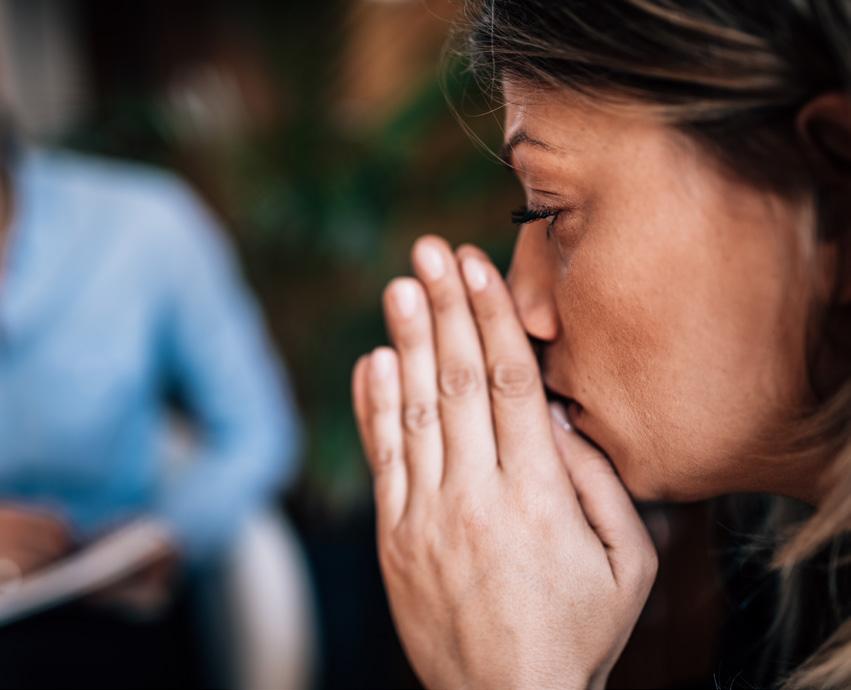
Quarter of a million people need CBT for anxiety, depression, OCD and Body Dyspmorphia
The NHS has revealed that 227,816 courses of Cognitive Behavioural Therapy (CBT) were given to people in England in 2022/23, accounting for 41.3% of all courses of therapy given in the year.
This figure is up 12% in just three years, when 202,223 people were given CBT courses in 2019/20, just before the Covid-19 pandemic. The UKAT London Clinic’s analysis of today’s NHS data shows that 60% (136,418) of those accessing all CBT courses do so due to a diagnosis of anxiety. This figure is up significantly (25%) since before the pandemic, when 109,339 people were diagnosed with anxiety back in 2019/20. Depression is the second most popular diagnosis where a course of CBT therapy is prescribed – accounting for 33% (77,167) of CBT courses given to people in this country last year. Back in 2019/20, CBT courses were given to people with depression 67,595 times, meaning a four year rise of 15%.
The UK Addiction Treatment Group’s London Clinic’s analysis of this NHS data has shown a concerning rise in CBT courses issued to people suffering with body dysmorphia. Back in 2020/21, CBT therapy was given to just 17 people diagnosed with body dysmorphia. New figures show that this has risen by a staggering 1,847%- up to 331 courses in 2022/23.
Lee Fernandes, lead therapist at the UKAT London Clinic, a mental health treatment facility commented: “Today’s figures prove that we’ve become an incredibly nervous nation. Rates of anxiety and other anxiety-related disorders such as OCD, body dysmorphia and agoraphobia are rising at alarming rates since the global pandemic, which is likely a significant cause.
“It’s only now that we’re truly seeing the mental health fall-outs of the Covid-19 crisis, and unfortunately, we believe that these NHS figures only tell part of the story. We know that there will be even more people out there struggling with confusing symptoms and dark thoughts, and we’re here to say that help is available. It’s time to prioritise your mental health and get the support that you need, no matter what your condition.” Shutterstock/William Barton/Microgen
Sixth Alma Academy held in Barcelona
Alma Lasers hosted the sixth Alma Academy in Barcelona in March, with nearly 400 physicians from 37 countries around the world in attendance.
The global summit brought together 16 world-class experts from across the industry to discuss the latest news, insights, and share real case practices.

Among the speakers were Prof Ofir Artzi and Prof Moshe Lapidot (Israel), Dr Munir Somji (UK), Dr Sachin Dhawan (India), and Dr Tiago Baptista Fernandes (Portugal). Topics ranged from skin rejuvenation to addressing challenging skin conditions, scars, and body contouring.
The event also included live demonstration sessions with Alma’s award-winning products such as the flagship Harmony XL Pro, , Alma Hybrid and Alma PrimeX.
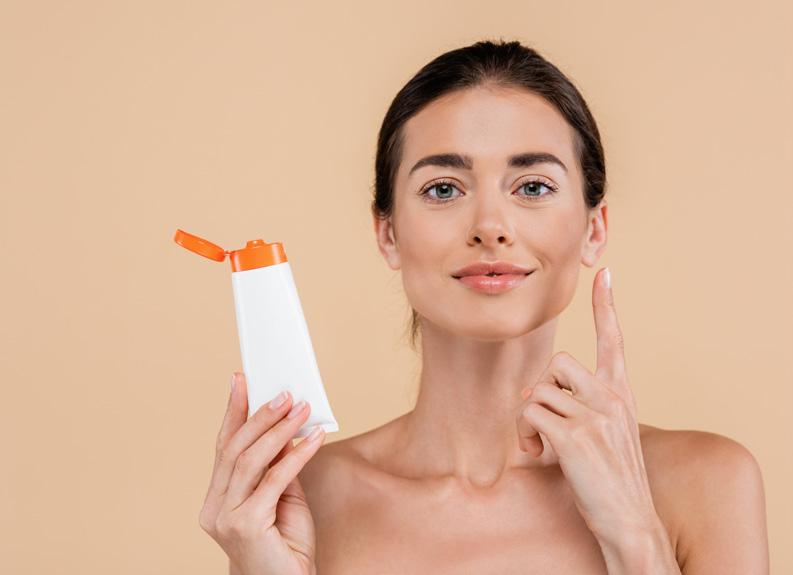
The UK does not follow sun safety guidance new survey data finds
Face the Future, launched its 366 Days of SPF campaign with a YouGov survey, which highlighted that the UK population is not adhering to SPF guidelines, putting their skin health at risk.
A large proportion of people said they found SPF expensive (64%) and only 22% of the 2,000 participants said they applied SPF daily. The fear of getting sunburn was greater than that of skin cancer and almost half of the population were not worried about getting skin cancer, nor were they familiar with the symptoms.
Nearly a third (31%) of the population said they actively seek a tan to look more attractive (53%) and confident (56%). Despite this, only 22% were concerned about the risks. Almost half of the UK population said they didn’t follow medical advice on wearing SPF daily. 45% said they disagree/strongly disagree with the medical advice to wear SPF every day, indoors and during winter, with over half only applying when it is sunny outside. Around one in seven said they never apply SPF.
The 366 Days of SPF campaign is backed by Amy Callaghan MP, whose VAT Burn campaign calls on the UK government to remove VAT from sunscreen products that have a health benefit.
She said, “Too many people still don’t protect their skin from the sun. It’s high time the UK government took note of these stats and enacted meaningful action to reduce deaths from melanoma and other skin cancers.”
Young mum dies days after Turkish BBL op
A 26-year-old British mum-of-three tragically died after getting a Brazilian bum-lift operation in Turkey. Demi Agoglia, 26, from Salford, Greater Manchester, is thought to have suffered cardiac arrests after returning to the clinic in Istanbul for a check-up following the surgery, The Sun reported in January.
The British Association of Aesthetic Plastic Surgeons have previously raised concerns about cosmetic surgery tourism and the risks of BBL procedures and patient safety guidelines drawn up by BAAPS in November may become the international standard in guidelines for cosmetic tourism.
News In Brief Stories
Medik8 Joins the BCorp Community
Medik8 has become B Corp certified, making it one of only 66 beauty manufacturers in the 8000-strong B Corp community worldwide to be recognised. The certification process is rigorous, with applicants required to reach a benchmark score of over 80 while providing evidence of socially and environmentally responsible practices relating to energy supplies, waste and water use, worker compensation, diversity and corporate transparency. Medik8 obtained certification with a score of 89.9 points.
Harley Academy receives £8 million investment
Private equity firm Rockpool
Investments has invested £8 million into aesthetic training company
Harley Academy. The investment will be dedicated to advancing Harley Academy’s curriculum, to provide trainees with evidence-based medical education. The funds will also support the training provider’s efforts to attract educators and industry experts and invest in technology and develop digital resources, adds the company.
Dr Derrick Phillips announces BioLite residency
Leading consultant dermatologist, Dr Derrick Phillips, has announced an ongoing residency at prestigious Dubai wellness clinic BioLite Clinic. Dr Phillips’ work is universally recognised within the dermatology and aesthetic industry by the likes of the British Skin Foundation, whom he works alongside in skincare research. Dr Phillips is also a specialist in adult female acne.
Scotland named ‘worst in Europe’ for risky fillers
Healthcare professionals, including members of the British Association of Cosmetic Nurses (BACN), have raised concerns about the lack of regulation in the aesthetics industry, particularly in Scotland. BACN Honorary Members, Jackie Partridge and Francis Turner Traill, spoke to BBC Journalist Georgina Hayes to warn that unqualified individuals are administering cosmetic treatments like dermal fillers, leading to potential harm for consumers. Read the full BBC article at: https://www.bbc. co.uk/news/articles/c3gejz2n7nro
Searches for ‘Glass skin products’ are skyrocketing by 202%
People are turning to research to achieve the perfect dewy skin with searches for ‘glass skin products’ skyrocketing by 202% in the past five years. The hashtag #glassskin is also trending on social media and has accumulated 3.9 billion views on TikTok alone worldwide.
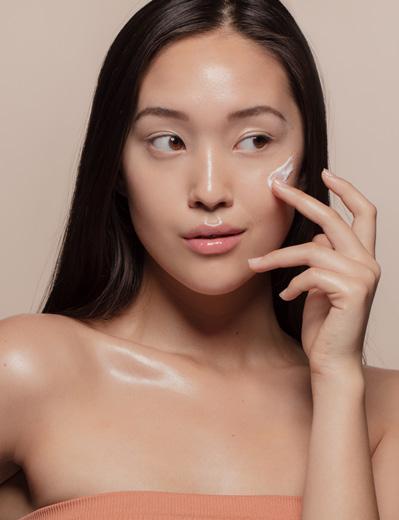
Glass skin, which is a trend known for its clear, dewy and reflective appearance, is a Korean beauty term which has now caught on globally. Social media users are searching for to achieve the look, with #koreanskincare gaining 6.8 billion views on TikTok. Google searches also show searches for ‘Korean skincare’ have exploded to an all-time high over the past five years by 258%.
A new finding from beauty and wellness marketplace Fresha has also revealled that online searches for ‘glowy skin’ have exploded by 178% globally. At the same time, TikTok has seen 9,000 posts with the hashtag #cleangirl and 61 million views from users in the UK. The ‘clean girl’ aesthetic going viral is known for its emphasis on natural beauty look.
Ihya House of Aesthetics opens in Edgbaston
Ihya House of Aesthetics has opened its doors in Edgbaston, Birmingham. The name Ihya is rooted in Arabic and translated as ‘revival.
The exclusive launch event took place on January 25, 2024, with welcome drinks, a ribbon-cutting ceremony, guided tours, live demonstrations, exclusive evening offers and guest speakers covering topics such as optimal skin health and revolutionary body treatments. Guests could also get a VISIA Skin Analysis and take part in the raffle
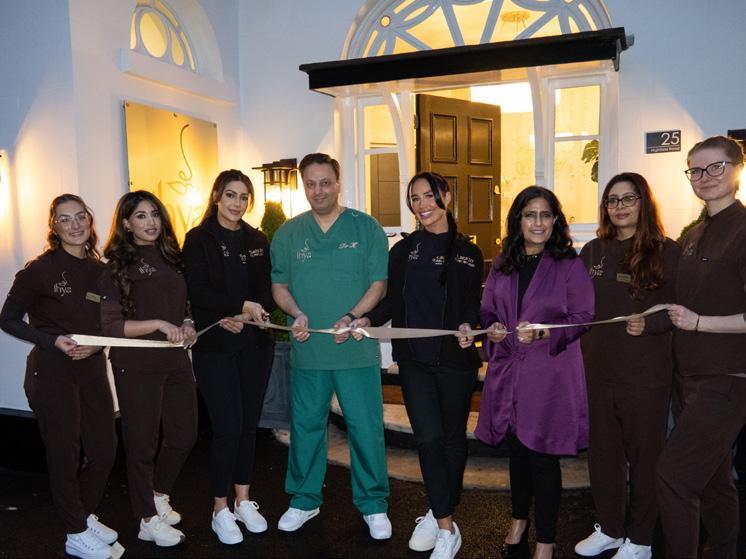
The treatment menu includes the multi-modality platform HydraFacial Syndeo; non-surgical face-lifts using minimally invasive, needle-free technology, such as radiofrequency and HIFES; non-invasive body sculpting; cellulite reduction; hair restoration; skin rejuvenating treatments and peels; laser hair removal; skin boosters and intimate rejuvenation treatments. The doctor-led clinic also offers psychology services.
Surgeon highlights concerns over viral Lemon Bottle trend
Mr Naveen Cavale, a distinguished plastic and reconstructive surgeon at REAL clinic, has expressed his concern regarding the rapid rise in popularity of Lemon Bottle.
The treatment has garnered widespread attention on platforms like TikTok, amassing millions of views under the hashtag #Lemonbottle. Data from Google suggests that interest in Lemon Bottle is surpassing interest in traditional procedures such as liposuction and other fatdissolving methods. The procedure involves numbing areas of concern, typically the chin, stomach and thighs, then injecting the solution directly into the fat cells.
Despite being hailed as the fastest fat dissolver, Mr Cavale cautions that there is a lack of substantial clinical evidence to support such claims.
“It’s being touted as the fastest fat dissolver there is, but it doesn’t appear to have clinical evidence behind it to lay claim to this,” states Mr Cavale. “My advice would be don’t rush in for it. It still needs assessing and regulating before it would appear on my personal roster of treatments. It might turn out to be great, it might also be a disaster, so I would personally say it’s not worth rolling the dice.”
Mr Cavale concludes by cautioning individuals about the transient nature of TikTok trends, citing previous viral phenomena like buccal fat removal and the Barbie Botox trend. “Trends come and go, so I would personally advise caution to anyone thinking about Lemon Bottle injections,” he remarks.
News In Brief Stories
Teoxane receives Medical Device Regulation Certification
Teoxane has announced that it has been granted with the Medical Device Regulation (MDR) certification. This makes it the first company that manufactures sterile, injectable, hyaluronic acid-based products specifically to treat wrinkles to have its entire product portfolio (TEOSYAL® PureSense and TEOSYAL RHA®) recognised for the safety and quality of its therapeutic and aesthetic properties.
Nearly half of UK adults report stress-related skin conditions
Nearly half (42%) of the UK population believe stress has had a negative impact on their skin and hair. Dry skin tops the list of stress-related beauty concerns, affecting three in 10 people, according to new stats from wholesaler Capital Hair & Beauty. The most common hair and skin conditions Brits struggled with in the last year were: Dry skin (29%); hair thinning and loss (22%); acne and breakouts (19%); inflammation (12%) and eczema (11%).
Virtual Clinic Manager launches in the UK
Virtual Clinic Manager (VCM) has launched in the UK, providing fast, automatic responses to clinic enquiries via email, calls and social media. It has been developed by aesthetic nurse prescriber and clinic owner Rebecca Hopkinson, who says the system has increased revenue by 50% in the first year of implementation in her own clinic.
SIAB and ABC Conference announce partnership
Success in Aesthetic Business (SIAB) and Aesthetics Business Conference (ABC) have formed an aesthetic business support partnership. SIAB is run in partnership with DSL Consulting Ltd and DH Training who have run a series of business support days for practitioners on enhancing their business skills. Hamilton Fraser, the owners of ABC, has also provided business support to the industry and its clients. The collaboration aims to offer comprehensive access to industry specialists in business skills across all regions. It will unfold over a 12-month period, culminating in the ABC event in October, 2024.











